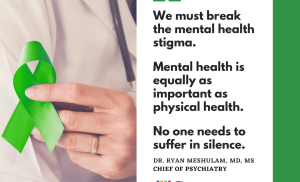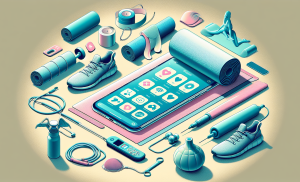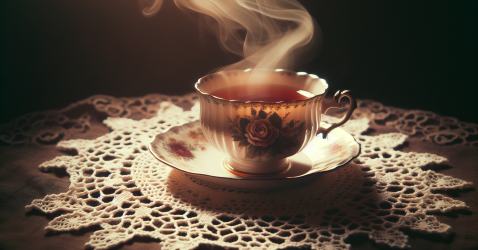Millennials Choose Self-Care Over Socializing: A New Trend?
In today’s fast-paced world, it seems that millennials are shifting their priorities towards self-care instead of socializing. With the constant pressures and demands of work, relationships, and social media, it’s no wonder that taking care of oneself has become a top priority. From practicing mindfulness and meditation to dedicating time for exercise and pampering, millennials are embracing the importance of self-care to maintain their mental, emotional, and physical well-being. This article aims to explore this growing trend and shed light on why millennials are choosing to invest in themselves over socializing.
Introduction
In today’s fast-paced and digitally connected world, a new trend has emerged among millennials – the prioritization of self-care over socializing. This article delves into the factors behind this shift in priorities and explores the various self-care practices that have gained popularity among this generation. While self-care is undeniably important for overall well-being, it is essential to strike a balance between taking care of oneself and maintaining meaningful connections with others.
1. Understanding the Millennial Generation
1.1 What defines the millennial generation?
The millennial generation, also known as Generation Y, typically refers to individuals born between the years 1981 and 1996. This generation is characterized by their digital fluency, diverse and inclusive mindset, and a passion for making a positive impact on the world. Millennials have grown up in a time of rapid technological advancements, which has significantly influenced their attitudes and behaviors.
1.2 The influence of technology on millennials
Technology has had a profound impact on the millennial generation, shaping the way they communicate, work, and access information. Growing up with the internet and social media platforms, millennials have become accustomed to constant connectivity and instant gratification. With the world at their fingertips, millennials have the opportunity to engage in various self-care practices through online platforms and resources.
1.3 Changing attitudes towards self-care
Compared to previous generations, millennials have displayed a greater emphasis on self-care. While self-care has always been important for maintaining physical and mental well-being, millennials have placed a higher priority on this aspect of their lives. This shift has been driven by several factors, including societal changes, increased awareness of mental health, and the desire for a better work-life balance.
2. The Rise of Self-Care Among Millennials
2.1 What is self-care?
Self-care encompasses activities and practices that individuals engage in to promote their own physical, mental, and emotional well-being. It involves taking intentional actions to nurture oneself and prioritize personal needs and self-compassion. Self-care is not just about pampering oneself with spa treatments or indulging in leisure activities; it is about establishing sustainable habits that contribute to long-term holistic wellness.
2.2 The importance of self-care for millennials
Millennials, more than any other generation, have recognized the importance of self-care in combating stress, maintaining mental health, and preventing burnout. The fast-paced and demanding nature of their lives has led them to prioritize self-care as a means of self-preservation. By devoting time and resources to focus on their own well-being, millennials aim to enhance their overall quality of life and build resilience to cope with life’s challenges.
2.3 The impact of social media on self-care trends
Social media has played a significant role in the rise of self-care practices among millennials. Platforms such as Instagram and Pinterest have become a source of inspiration and information, promoting self-care as an essential component of a balanced lifestyle. From wellness influencers sharing tips on mindfulness to fitness enthusiasts advocating for physical self-care, social media has created a space that encourages millennials to prioritize their well-being.
3. Factors Influencing the Shift in Priorities
3.1 Work-life balance and burnout
One key factor contributing to the prioritization of self-care among millennials is the pursuit of a better work-life balance. Many millennials have firsthand experience witnessing the detrimental effects of overworking, burnout, and chronic stress in the previous generation. As a result, they have become more aware of the importance of setting boundaries, taking breaks, and prioritizing self-care as a means of maintaining their mental and physical health.
3.2 Mental health awareness
Millennials have been at the forefront of the mental health awareness movement, actively seeking information, resources, and support to address their mental well-being. As conversations around mental health become more mainstream, millennials are increasingly prioritizing self-care practices that promote emotional and psychological well-being. This includes engaging in activities such as therapy, meditation, journaling, and mindfulness to manage stress and cultivate resilience.
3.3 Changing societal expectations
Societal norms and expectations have also undergone significant shifts, influencing millennials’ priorities regarding self-care. In the past, there may have been pressure to constantly be productive, achieve career milestones, and maintain a busy social life. However, millennials are challenging these expectations and embracing the idea that self-care is crucial for personal growth and overall happiness. They are redefining success to include a balance between work, self-care, and meaningful relationships.
4. Self-Care Practices Popular Among Millennials
4.1 Physical self-care routines
Physical self-care involves practices that prioritize the body’s well-being, including exercise, proper nutrition, and sufficient sleep. Millennials have taken a keen interest in activities such as yoga, meditation, and mindfulness exercises to cultivate physical well-being. Additionally, engaging in hobbies that promote physical health, such as hiking, dancing, or cycling, has become popular among this generation.
4.2 Emotional and mental well-being
To nurture their emotional and mental well-being, millennials turn to various self-care practices. Regular therapy or counseling sessions are embraced as a means of seeking professional support and maintaining emotional balance. Mindfulness and meditation practices, as well as engaging in creative outlets such as painting, writing, or playing an instrument, help millennials actively manage stress and improve their overall mental well-being.
4.3 Social self-care and building meaningful connections
While millennials may prioritize self-care, they also recognize the importance of maintaining meaningful relationships and engaging in social connections. Social self-care involves nurturing healthy relationships, setting boundaries, and surrounding oneself with supportive individuals. Millennials actively seek out communities and groups that align with their interests, enabling them to foster connections and find like-minded individuals for a sense of belonging and support.
5. Challenges and Pitfalls of Prioritizing Self-Care
5.1 The struggle to find time for self-care
Despite the growing importance of self-care, many millennials struggle to find time to devote to these practices amidst their demanding schedules. Balancing work, personal relationships, and other responsibilities can make it challenging to carve out dedicated time for self-care activities. However, finding creative ways to integrate self-care into daily routines, such as incorporating mindfulness exercises during commutes or prioritizing activities that bring joy, can help overcome this hurdle.
5.2 The pressure to constantly present a positive image
In the age of social media, there is often pressure to present a flawless and positive image to the world. This pressure can create a sense of inauthenticity and hinder individuals from truly prioritizing their own needs and well-being. To combat this, millennials are increasingly recognizing the importance of embracing vulnerability, setting realistic expectations, and sharing their authentic experiences to foster genuine connections and nurture their own self-care practices.
5.3 The risk of isolation and loneliness
While self-care can be empowering and rejuvenating, there is a risk of unintentionally isolating oneself from social interactions. Balancing self-care with maintaining meaningful connections is essential. Overly prioritizing self-care at the expense of socializing can lead to feelings of loneliness and detachment. It is crucial to strike a healthy balance and actively engage in both self-care practices and social interactions to foster a well-rounded sense of well-being.
6. Examining the Impact on Socializing
6.1 Decline in traditional socializing activities
The prioritization of self-care among millennials has resulted in a decline in traditional socializing activities. While previous generations may have engaged in frequent social outings, millennials are more likely to opt for a quieter night in, focusing on self-care activities or spending quality time alone. This shift has challenged traditional notions of socializing and prompted the emergence of alternative means of connection.
6.2 The rise of virtual connections and online communities
As face-to-face socializing decreases, millennials have embraced virtual connections and online communities as a means of maintaining social interactions. Platforms such as online forums, social media groups, and video chats have become popular avenues for engaging with like-minded individuals and building communities centered around shared interests and goals. Virtual connections can offer a sense of belonging and support, creating a unique form of socializing for millennials.
6.3 The importance of balance between self-care and socializing
While prioritizing self-care is crucial, it is important to strike a balance with socializing. Human connection and genuine interactions play a vital role in overall well-being and mental health. In an increasingly digital world, millennials must be mindful of nurturing offline relationships and engaging in meaningful face-to-face interactions. Balancing self-care practices with socializing can contribute to a sense of fulfillment and happiness.
7. Expert Opinions and Research Findings
7.1 Perspectives from psychologists
Psychologists have observed the increased prioritization of self-care among millennials and the potential benefits it can have on their well-being. They emphasize the importance of self-care as a means of managing stress, preventing burnout, and promoting overall resilience. However, experts also warn against the dangers of excessive self-isolation and encourage millennials to balance self-care practices with meaningful social engagements for optimal well-being.
7.2 Studies on millennial behavior and self-care trends
Research studies have shed light on the growing trend of self-care among millennials. Findings indicate that this generation is more likely to engage in self-care practices compared to previous generations. These practices not only benefit individuals’ personal well-being but also have a positive impact on their productivity, happiness, and overall life satisfaction. The studies highlight the need for a comprehensive understanding of self-care as a multi-dimensional concept that goes beyond relaxation and indulgence.
Conclusion
The prioritization of self-care over socializing among millennials is indeed a new trend that has emerged in recent years. Driven by factors such as changing attitudes, the influence of technology, and a desire for improved work-life balance, millennials have recognized the importance of self-care practices for their overall well-being. While there are challenges and potential pitfalls associated with prioritizing self-care, millennials are finding ways to strike a balance between self-care and socializing to foster meaningful connections and a holistic sense of well-being. As society continues to evolve in the digital age, understanding and embracing the importance of self-care will remain essential for millennials and future generations.

















